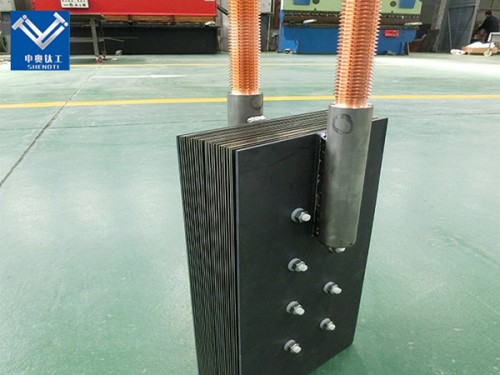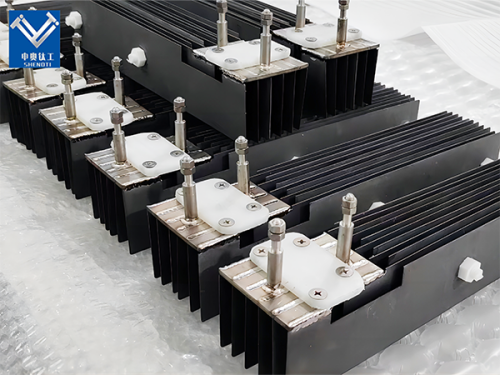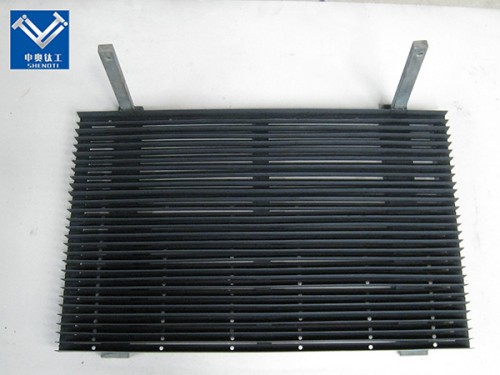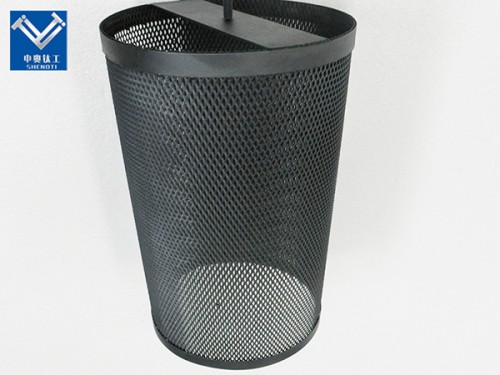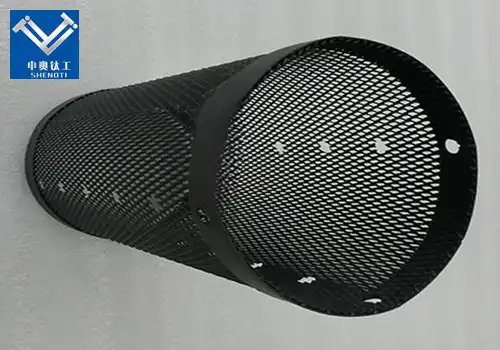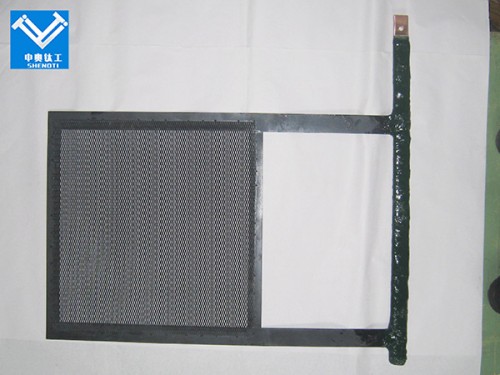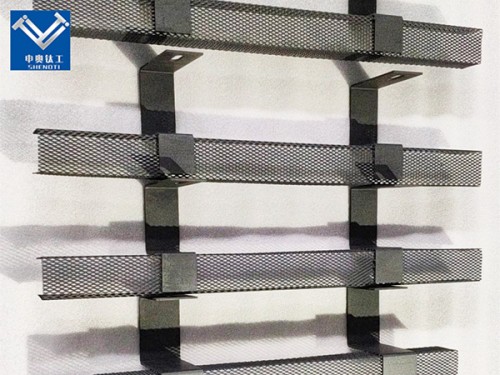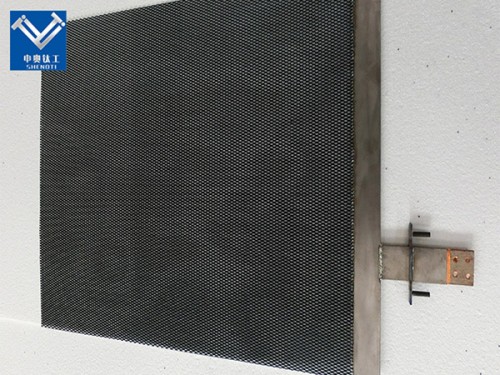
In What Industries Are MMO Titanium Anodes Mainly Used?
2025-06-06 16:09:30
In What Industries Are MMO Titanium Anodes Mainly Used?
Ruthenium Coated Titanium Electrodes, a type of Mixed Metal Oxide (MMO) titanium anode, have emerged as indispensable components in various industrial applications due to their exceptional electrochemical properties, durability, and efficiency. These electrodes are characterized by a titanium substrate coated with a mixture of metal oxides, predominantly ruthenium oxide (RuO₂), often combined with other oxides like iridium oxide (IrO₂) or tantalum oxide (Ta₂O₅), to enhance their catalytic activity and stability .
The versatility of MMO titanium anodes, particularly those coated with ruthenium, stems from their ability to facilitate various electrochemical reactions, including chlorine and oxygen evolution, with high efficiency and selectivity. Their robust performance in harsh environments, such as acidic or saline conditions, makes them suitable for a wide range of industries.
What Are the Primary Applications of Ruthenium Coated Titanium Electrodes?
Ruthenium Coated Titanium Electrodes are integral to several industrial processes due to their unique properties. Their primary applications include:
1. Water Treatment and Disinfection
In water treatment facilities, these electrodes play a crucial role in electrochemical processes such as electrochlorination, electrocoagulation, and electrooxidation. They facilitate the generation of chlorine or hypochlorite on-site, eliminating the need for hazardous chemical storage and handling. This is particularly beneficial for municipal water treatment plants, swimming pools, and cooling towers .
2. Electroplating and Metal Finishing
The electroplating industry relies on Ruthenium Coated Titanium Electrodes for depositing metals like gold, silver, copper, and nickel onto various substrates. These electrodes ensure uniform metal deposition, improved adhesion, and enhanced corrosion resistance of the plated layers. Their stability and longevity reduce downtime and maintenance costs in plating operations .
3. Chlor-Alkali Industry
In the chlor-alkali process, which involves the electrolysis of brine to produce chlorine, hydrogen, and sodium hydroxide, Ruthenium Coated Titanium Electrodes serve as the anode material. Their high catalytic activity for chlorine evolution and resistance to corrosion under high current densities make them ideal for this application .
4. Cathodic Protection Systems
These electrodes are widely used in impressed current cathodic protection (ICCP) systems to prevent corrosion of metal structures such as pipelines, storage tanks, offshore platforms, and reinforced concrete structures. Their ability to deliver consistent current over extended periods ensures the longevity and integrity of these structures .
5. Electrowinning and Electrorefining
In hydrometallurgical processes like electrowinning and electrorefining, Ruthenium Coated Titanium Electrodes facilitate the extraction and purification of metals such as copper, zinc, nickel, and gold from their ores or solutions. Their high efficiency and selectivity contribute to improved metal recovery rates and product purity .
How Do Ruthenium Coated Titanium Electrodes Enhance Efficiency in Electrochemical Processes?
The superior performance of Ruthenium Coated Titanium Electrodes in electrochemical applications can be attributed to several key factors:
1. High Electrocatalytic Activity
Ruthenium oxide exhibits excellent catalytic properties for chlorine and oxygen evolution reactions. When used as a coating on titanium substrates, it significantly reduces the overpotential required for these reactions, leading to lower energy consumption and increased process efficiency .
2. Enhanced Durability and Corrosion Resistance
The combination of a titanium substrate with a ruthenium oxide coating results in electrodes that can withstand aggressive chemical environments, including acidic and saline conditions. This durability ensures a longer service life and reduces the frequency of electrode replacement .
3. Uniform Current Distribution
The conductive and stable nature of the ruthenium oxide coating allows for even current distribution across the electrode surface. This uniformity is crucial for consistent electrochemical reactions, especially in applications like electroplating and water treatment, where uneven current can lead to suboptimal results .
4. Environmental Benefits
By facilitating on-site generation of disinfectants and reducing the need for chemical additives, these electrodes contribute to more environmentally friendly processes. Their long lifespan also means fewer resources are consumed over time, aligning with sustainability goals .
What Are the Maintenance Requirements for Ruthenium Coated Titanium Electrodes?
Proper maintenance of Ruthenium Coated Titanium Electrodes is essential to ensure their optimal performance and longevity. Key maintenance considerations include:
1. Regular Inspection
Periodic visual inspections can help detect signs of wear, scaling, or coating degradation. Early identification of issues allows for timely intervention, preventing potential process disruptions.
2. Cleaning Procedures
Over time, electrode surfaces may accumulate deposits that hinder performance. Cleaning methods, such as gentle brushing or chemical cleaning with appropriate solutions, can restore electrode activity. It's crucial to follow manufacturer guidelines to avoid damaging the coating.
3. Monitoring Electrical Parameters
Tracking parameters like cell voltage and current efficiency can provide insights into electrode condition. Significant deviations from normal operating values may indicate electrode degradation or other system issues.
4. Storage and Handling
When not in use, electrodes should be stored in clean, dry conditions to prevent contamination or physical damage. Proper handling during installation and maintenance minimizes the risk of mechanical damage to the coating.
How Do Ruthenium Coated Titanium Electrodes Compare to Other Anode Materials?
When selecting anode materials for electrochemical applications, it's essential to consider factors like performance, cost, and environmental impact. Here's how Ruthenium Coated Titanium Electrodes compare to other common anode materials:
1. Lead-Based Anodes
While lead-based anodes are cost-effective and have been widely used, they pose significant environmental and health risks due to lead's toxicity. Additionally, they have lower current efficiency and shorter service life compared to ruthenium-coated titanium electrodes.
2. Graphite Anodes
Graphite anodes are inexpensive and offer good conductivity but are prone to degradation and have limited lifespan, especially in aggressive chemical environments. They also tend to produce more sludge, increasing maintenance requirements.
3. Platinum-Coated Titanium Anodes
Platinum-coated titanium anodes offer excellent performance and corrosion resistance but are significantly more expensive than ruthenium-coated counterparts. While platinum anodes may be preferred for specific high-end applications, ruthenium-coated electrodes provide a more cost-effective solution for many industrial processes.
Ruthenium Coated Titanium Electrodes strike a balance between performance, durability, and cost, making them a preferred choice for various electrochemical applications.
Ruthenium Coated Titanium Electrodes, as a type of MMO titanium anode, have proven to be vital components in numerous industries, including water treatment, electroplating, chlor-alkali production, cathodic protection, and metal refining. Their exceptional electrochemical properties, durability, and efficiency make them indispensable for processes requiring reliable and long-lasting anode materials.
By understanding their applications, advantages, and maintenance requirements, industries can leverage these electrodes to enhance process efficiency, reduce operational costs, and contribute to more sustainable practices.
Contact Us
For more information about Ruthenium Coated Titanium Electrodes and how they can benefit your specific applications, please contact us:
Email: zh@baojiti.com.cn
Our team of experts is ready to assist you with product selection, technical support, and customized solutions to meet your electrochemical needs.
YOU MAY LIKE











